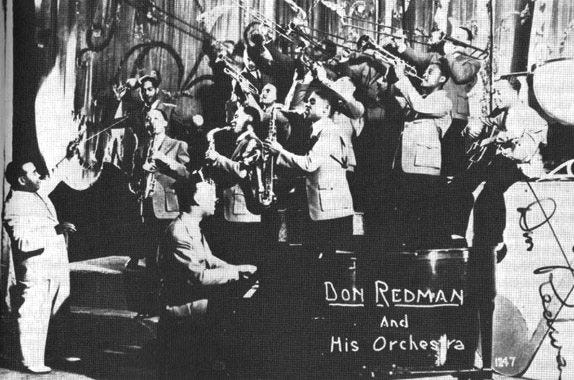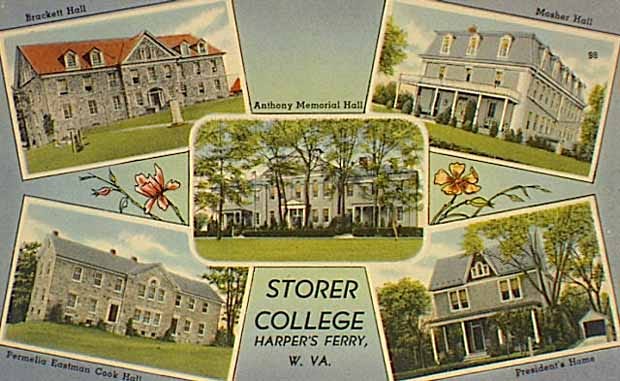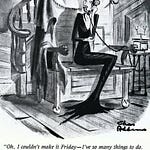Don Redman — a young man from Piedmont, West Virginia, who did much to create the sound that the world came to know as big band swing — composed “Gee, Baby, Ain’t I Good To You?” just as The Roaring Twenties came to a close.
In fact, the song’s first studio recording, featuring Don performing with McKinney’s Cotton Pickers, came out just one week after the 1929 stock market crash that started the Great Depression.
The crash even inspired a revision of the song. Andy Razaf’s original words reflected the consumer-driven culture of the ‘20s, using expensive gifts to illustrate the depth of the narrator’s sentiments. “Bought you a fur coat for Christmas and a diamond ring,” said the initial lyrics, “a big Packard coupe and everything.” Ut-oh, Packard was bankrupted and went out of business. (“Big Cadillac car” took its place in the verse.)
The mid-1920s had been good for Don Redman. He was responsible for integrating the rhythmic approach of Louis Armstrong’s playing into his arrangements for Fletcher Henderson’s Orchestra. In 1927 Redman was wooed away from Henderson to join McKinney’s Cotton Pickers, the house band at the celebrated Greystone Ballroom in Detroit.
It turned out the 1930s were darn good for Don as well. The trademark of his ever-more sophisticated band arrangements was the harmony he wrote to play under the group’s solos.
His brass and reed sections played off each other in a titillating call-and-response pattern; one section punctuated the figures of the other, while the melody moved around to different orchestral sections and soloists. So innovative was the Don Redman style that it was to be widely imitated in jazz arrangements for decades to come.
Redmond remained active in music until his death in 1964 at age 64. And while he never again lived in West Virginia, he did not forget his home state, especially Harper Ferry’s Storer College, from which he graduated in 1920. His most lasting musical contribution to the institution was his composition of the “Storer College Alma Mater,” which endured throughout the school’s history.
Back to the Song
“Gee, Baby, Ain’t I Good to You?” was the first song Don Redman wrote for McKinney’s Cotton Pickers, but after its 1929 release, the tune went into cold storage.
More than a decade passed before the next major jazz artist recorded the song, and it turned out to be yet another West Virginian.
Saxophonist Chu Berry, a Wheeling, WV, native, recorded the song in 1941 on the flip side of his rendition of “Sunny Side of the Street.” (Sadly, it would be Berry’s last recording before his untimely death from an automobile accident in northern Ohio later that year.)
Two years later, Don’s song finally made the big time when the great Nat King Cole turned “Gee, Baby, Ain’t I Good To You?” into a hit, topping the 1943 R&B charts. Around the same time, Count Basie adopted the song as a favorite, using it to showcase vocalists, including Jimmy Rushing and Joe Williams.
Though modernists like Dizzy Gillespie, Art Blakely and Paul Bley also recorded the tune over the years, it was among more traditional jazz players that “Gee, Baby, Ain’t I Good To You?” remains a favorite.
Our Take on the Tune
Last week was our first outing on this great old jazz standard.
When we started it, Veezy said she wasn’t sure she was familiar with it. By the time we finished it, it sounded like she wrote it herself!





















Share this post